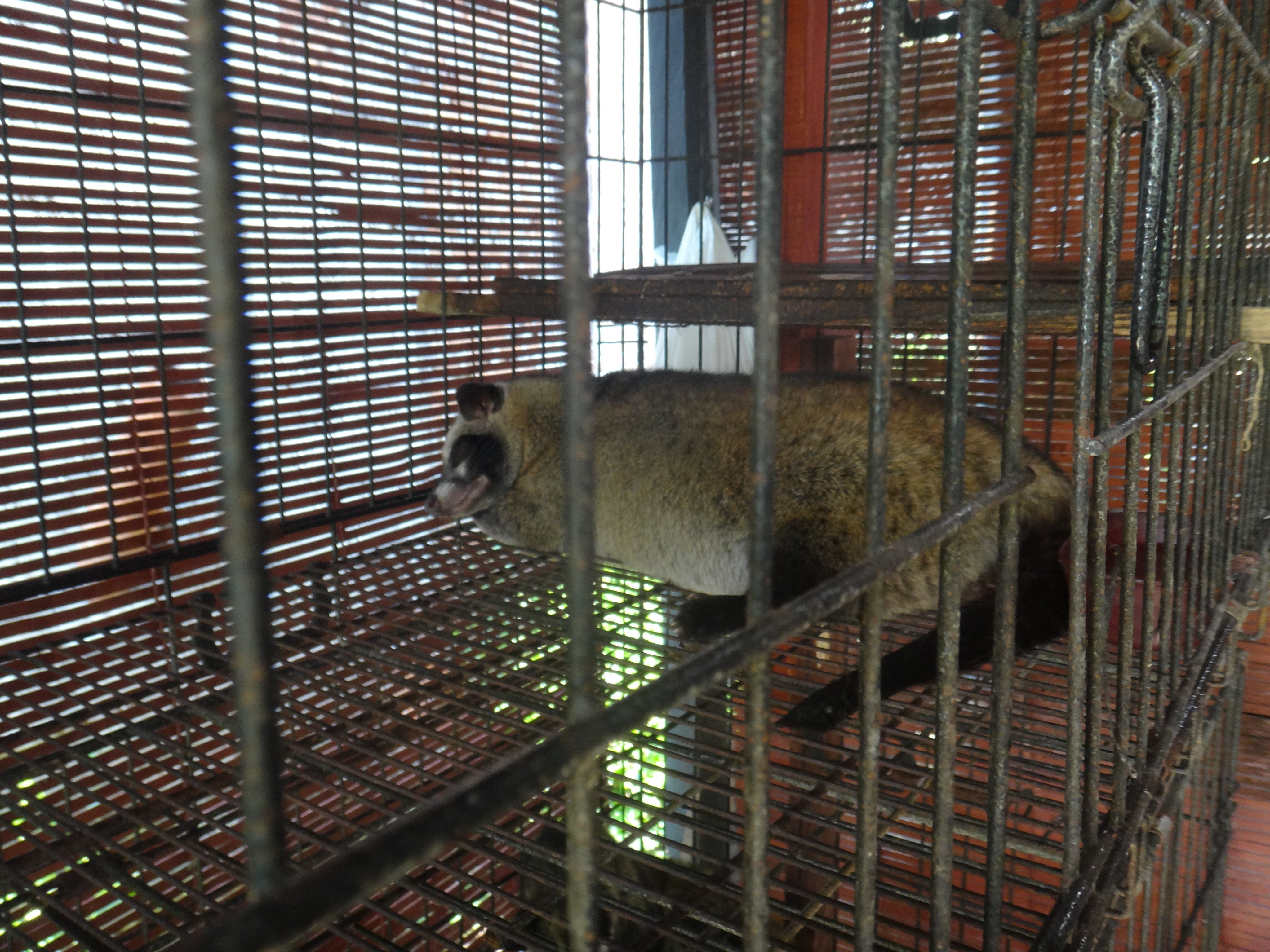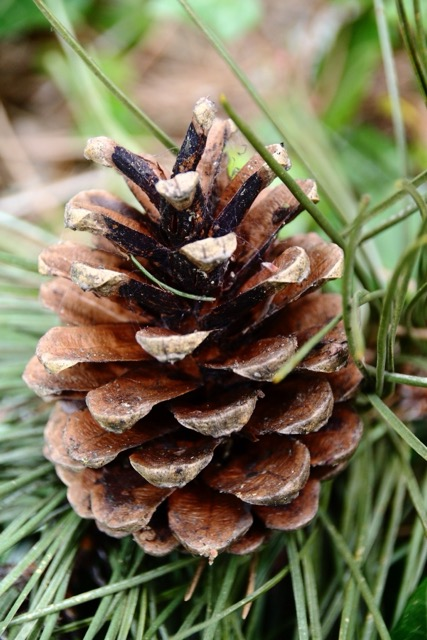I thought this was just a joke in persona 5 what the fuck?
The biggest problem: the civets are held in catastrophic conditions. Cages as big as shoe boxes. Just for shitty coffee. I hate humans.
(german source: https://www.peta.de/themen/kopi-luwak/ )
(english source: https://www.bbc.com/news/uk-england-london-24034029 )
[food] comes from [animal]!
learn more
[animal] is subjected to the most horrific conditions imaginable to produce [food].
yeah, that’s usually how it goes.
I had the opportunity to try this when I was in Indonesia. The place I was at was a cafe advertising the most expensive coffee in the world, I think it was approximately USD$30 for a cup at the time (almost 10 years ago).
I remember seeing the example cages with civets inside them and a description of how it’s made (plus a conversation with a friend I was travelling with), and decided not to try it.
Do you remember where in Indonesia that was? I visited one near Bandung not realising what this coffee actually was. Bit like you I left without trying or buying. The place was a visitor centre and we weren’t allowed to look at the actual farm.
Well hey, lucky us, we’re about to find out if I’m a lier! I just spent 30+ mins digging through photos. Is this a civet?

It’s not geotagged, it was taken with an average 10 years ago digital camera, but based on the photos taken at the same time, it’s in the general area of Borobudur, but not actually at that temple. My best guess is near Prambanan. Possibly we stopped somewhere on the taxi ride from one to the other.
I don’t think we went to Bandung, or at least I don’t remember stopping there. My memory is fuzzy but I think we drove from Jakarta to Yogyakarta so must have at least passed nearby. The place wasn’t an actual farm though, just a place serving the coffee with an example civet outside.
Blimmin heck! Appreciate the effort in digging that photo up! It doesn’t sound like the same place though.
I’ve done a similar journey in the past and there’s places to stop everywhere. Even in a jungle in north Sulawesi at night, middle of no where, some fella selling durian in a cabin next to a dirt road.
This is covering a few experiences across Indonesia. We stopped at a frozen food shop which had 2 lions in small cages. Stopped at a private collector to see the world’s smallest primate (which I can’t remember the name of now) to find chimpanzees in cages bearly large enough to hold them. Driver stopped at a village which was ravaged by a volcano and people rebuilding their houses, asked if we wanted to stop to take pictures. Asked if we want to visit a wet market selling dog meat. Mid 2000’s, driver asked if we wanted to stop by at the scene of the Bali bombings for photos. Went to a turtle sanctuary to find them baking in bad conditions. Went to a coral reef to find some of the worse plastic pollution I’ve personally seen. Don’t even start me on Jakarta! Although that pace is improving in recent years
Place is crazy. Total lack of consideration for animals and people, unless religion or culture is involved, then the rules are strict. I got in trouble once for handing money over with my left hand.
Totally different to what I’m used to! Place is nuts.
I just had the one trip, about a week in Jakarta (including a friend’s wedding), some time in Yogyakarta and Borobudur, and then were met up with the married couple and spent some time in Bali (my least favourite place, super touristy).
We didn’t have quite the offers you got!
Jakarta is crazy. We spent 3 hours in traffic to drive 28km one day. We saw a big apartment building and one next to it on a lean and gutted. Apparently they built one, it was on a lean, so they built it again next door, stripping the first on for materials.
Went up the big tower/monument thing, there is city as far as the eye can see. In fact, flying over Indonesia there aren’t really any large open spaces. Even farm land has buildings around the edge of each field.
I also drank a locally made rice based alcohol drink that if I knew about the risks I probably wouldn’t have drunk it.
They didn’t used to be, but once there was a demand and market for shit coffee then they capitalised.
I remember reading an article by the guy the that brought attention to it saying how much he regretted it.
I bet this started as a troll and then everyone lost the plot
So I have a story related to this. I teach English in Korea. One time, two 11-year-old students chose kopi luwak as a topic for their in-class (no research) project. I asked what that is, as I had never heard of it. They explained in pre-intermediate English that there is a cat that poops coffee beans. I didn’t believe them at first, because it sounded so silly. But they urged me to look it up. At first, I got confused between ‘kopi’ and ‘coffee’, because Korean has no ‘f’ sound and substitutes a ‘p’ sound. But when I finally found the Wiki page, I was blown away. The fact that this is real would be so funny if it weren’t for all the abuse another user pointed out.
Additionally, iirc a lot of these are unethically farmed too, like force feeding them in captivity and collecting the droppings. This also reduces the quality.
I was in Bandung in Indonesia earlier this year. We visited one of these places not realising what it was. The visitor centre had a bunch of cages which weren’t small but I wouldn’t say large enough for the size of the animal. We asked if we can see the actual farm. He said it was the largest farm so we asked to see it. Nope, not allowed.
They’re also on a strict diet. I wouldn’t be surprised if the ones not on display are force fed.
If you are a living organism with the capacity to tell misery or pain just hope that humans don’t find out you can make a product that nothing else an can. If you do end up I’m that situation, you will be turned into a biological machine that receives the minimum amount of necessities met as to not impact production.
Literally a shitpost.
How do I block individual posts, because I’d like to stop seeing this one.
No shit coffee on your feed my friend? I’m sorry, but this is a DEMOCRACYYYYYYY!!!
I remember reading that wild animals just eat the best cherries, it has nothing to do with the digestion. The caged animals are just making shit beans.
A big part of this story is that the civets are very picky and only eat the best coffee cherries. There might of course also be other factors, but the pickiness is key.
And because it’s expensive people have abused these poor animals just so they can sell the coffee.
Business idea: lab grow the gut microbes of these monkeys and create more efficient pipeline for fermenting these coffee beans. But provide the “natural” offering too for people who have eating ass food fetish.
The problem is that it doesn’t actually taste good. It’s the labor-intensive and “exotic” manufacturing process that makes the coffee so expensive, not its quality.
This person says it does taste good though https://kitchensurfers.com/is-civet-coffee-good/
I’ve seen many more coffee folks who have opinions ranging from “it doesn’ttaste different than the local coffee” to “it tastes downright bad”. James Hoffmann has a good video on it: https://yewtu.be/watch?v=pkbuFwHnJQY
That’s fair, people have different perceptions of food stuffs. Like some people hate coriander because to them it tastes like soap
Cilantro and coriander come from the same plant, coriandrum sativum. In North America, cilantro refers to the leaves and stalks, while coriander refers to the dried seeds. Cilantro has a citrusy flavor, while coriander seeds have an earthy taste with floral notes.
TIL. This explains why my sibling hates anything seasoned with coriander, as well as any inclusion of cilantro.
…it’s already a thing and readily available in southeast asia…
He’s going to feel so relieved
Unless brewing them in a special way is required to bring out the flavour, it tastes just like regular coffee to me when I had it
Me: spits coffee into the barrista’s face “yo, this coffee tastes like dirt!”
Barrista: “well it was fresh ground this morning.”
Get out! Dad jokes is that way --> !dadjokes@lemmy.world
Rich people have more money than sense. We should make them pay their taxes to help with this…
Removed by mod








